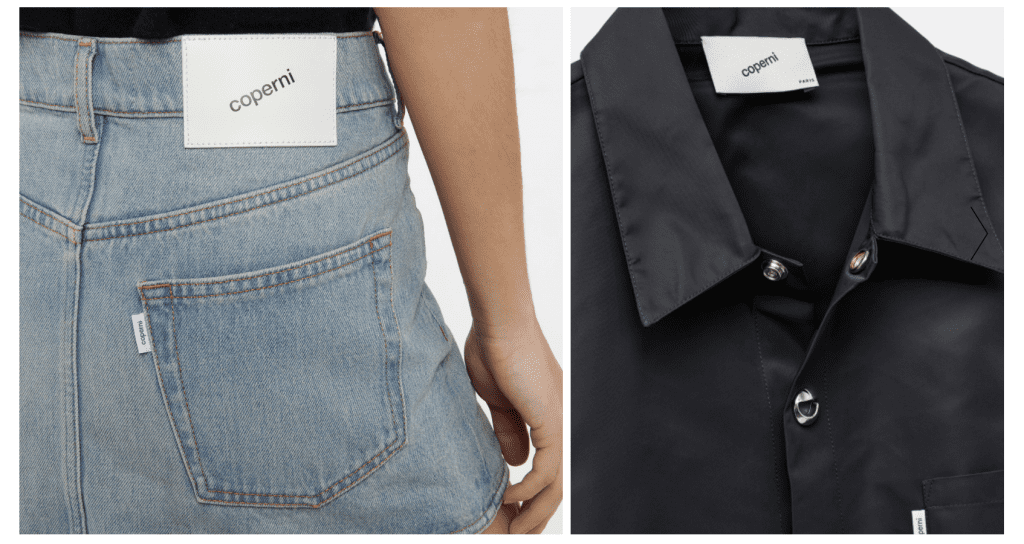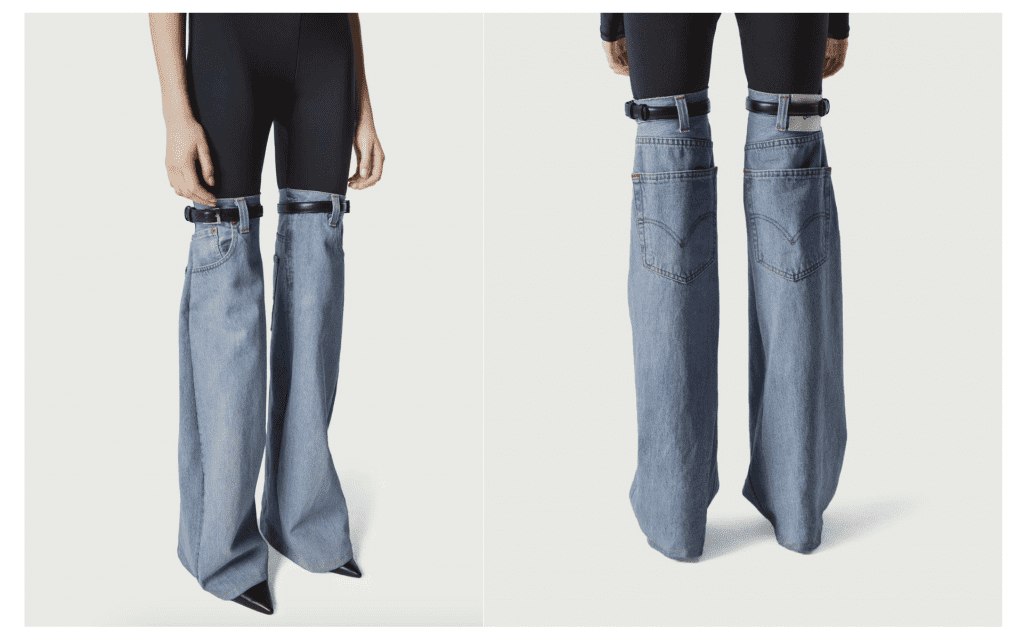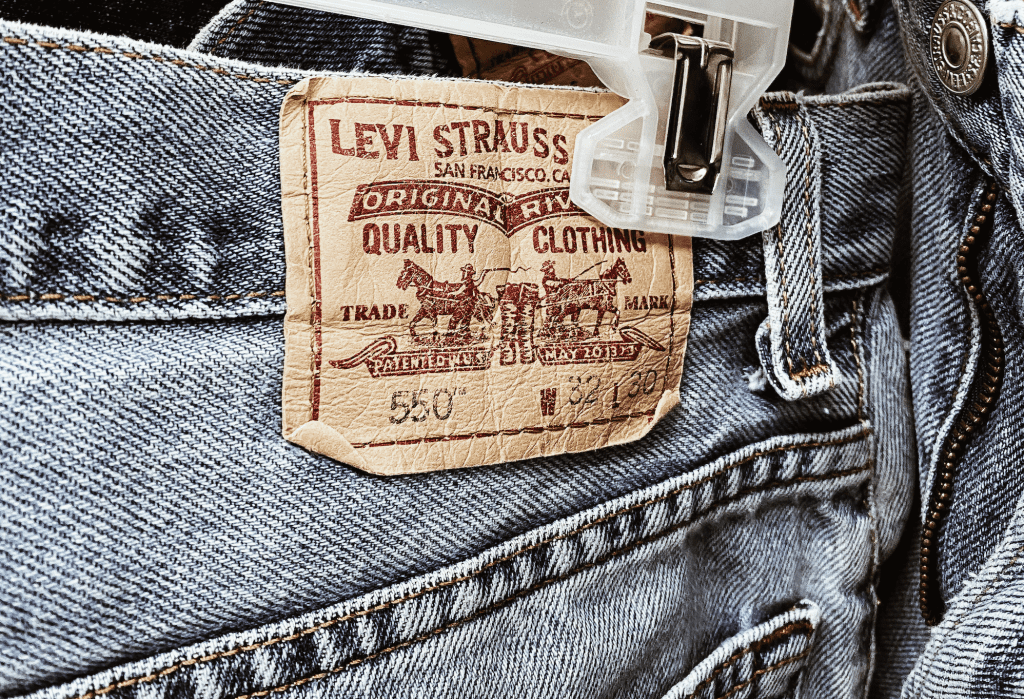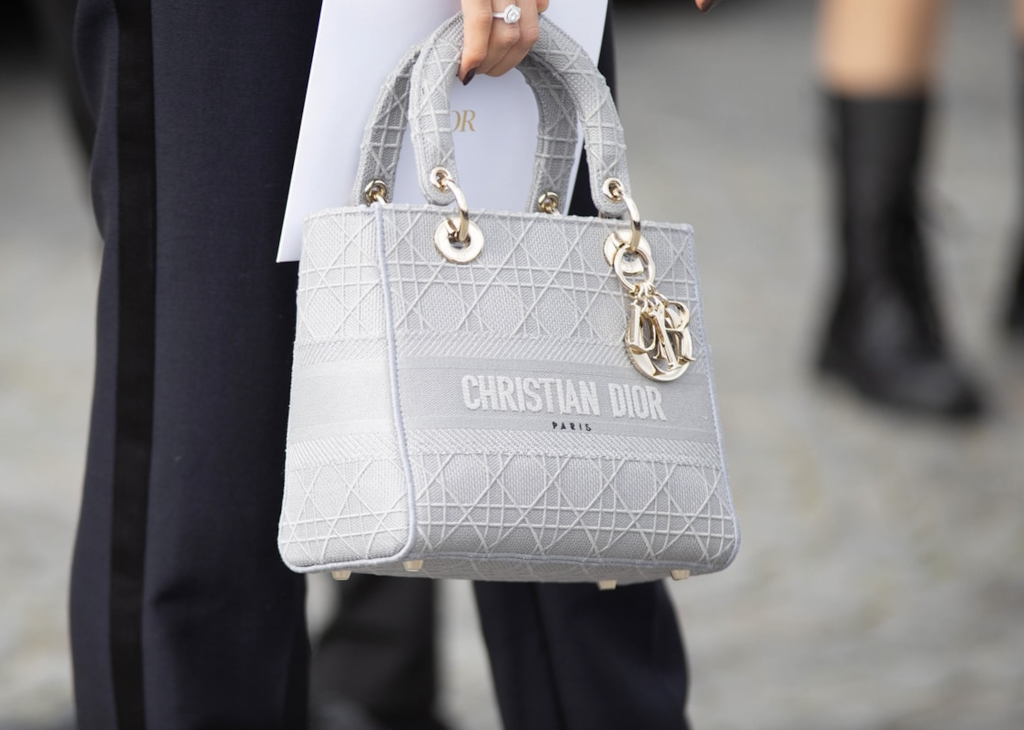Levi’s has filed an interesting new lawsuit, in which it is taking on Coperni over its alleged use of confusingly similar little fabric tabs and a lookalike stitching pattern. At the same time, Levi’s claims that Coperni goes even further and is offering up jeans bearing the infringing trademarks alongside authentic Levi’s products that have been “reworked” by the buzzy fashion brand in an unauthorized manner, thereby, not only creating the potential for consumer confusion as to the source/nature of the denim at issue but also “depriving [Levi’s] of its rights to use and control [the] use of its trademarks and maintain its reputation with consumers, licensees, and collaborators, including the exclusive use of its trademarks on products and services that [it] creates, produces, licenses, and sells.”
Setting the stage in its complaint, which it filed in a California federal court on September 7, Levi’s asserts that it began using its tab trademark back in 1936, making it one of “the oldest and most well-respected apparel trademarks in the world.” The San Francisco-based denim-maker now maintains an arsenal of trademark rights in (and registrations for) the tab mark, which it claims is “recognized around the world and throughout the U.S. by consumers as signifying authentic, high-quality LEVI’S® garments.” As for its Arcuate trademark, which consists of “a distinctive pocket stitching design,” Levi’s claims that it has “continuously” used this mark on clothing products, including jeans, since 1873.
Coperni comes into the picture, according to Levi’s, as it is infringing – and diluting – the “famous” Levi’s tab trademark by affixing a small fabric tag to its own products, including the back pocket of its denim offerings and the front pocket of button-up shirts, and using that tab as “a symbol for its own apparel products.” (It is worth noting that the similarly-placed Coperni tabs are emblazoned with the word COPERNI, and that the claims on this front follow from no shortage of Levi-filed trademark suits over other brands that make use of tabs.)

Beyond the fabric tabs, Levi’s also points to Coperni’s simultaneous sale of reworked Levi’s products. Levi’s asserts that in addition to offering up the Coperni-branded products with the allegedly infringing tabs, the Sébastien Meyer and Arnaud Vaillant-founded womenswear brand is selling “unauthorized ‘reworked’ versions of [Levi’s] authentic apparel products.” The latter products “retain [Levi’s] Arcuate trademark and Tab trademark in a manner that is likely to confuse consumers about the source of [the reworked] Coperni products” and/or whether or not there is “a relationship between” Coperni and Levi’s, the denim giant contends.
Collaboration x Confusion
Against that background, there are two particularly interesting elements here (for me): First, there is the issue of confusion with regard to the fabric tabs. Are consumers likely to be confused about the source of denim goods bearing small fabric tabs that clearly say COPERNI – particularly the pants and skirts, which also include a patch on them that boldly says Coperni? Maybe not – especially in an initial sale scenario. But not so fast, Levi’s argues that the situation is a bit more nuanced than that, as it has a history of license deals and partnerships/collaborations. As a result, consumers might be confused as to the nature of the Coperni wares, including whether or not they are the product of a Levi’s collab or are otherwise affiliated with Levi’s. (On a related note: We dive into what I view as the increasing potential for consumer confusion in light of the enduring influx of branded collaboration and the ever-broadening zone of expansion here.)
To this point, Levi’s asserts that it “sometimes enters license agreements so that licensees may produce authorized products to [Levi’s] specifications, [and] the Arcuate trademark and tab trademarks may be licensed for this purpose.” Beyond that, Levi’s says that it “often engages in collaborations with designers and other brands to produce a jointly created and sponsored item, including many designers and brands with a public image and brand equity that are highly similar to [Coperni’s] market position.”
What Levi’s appears to be doing here is bolstering its likelihood of confusion claim by arguing that Coperni is not only using lookalike tabs on products that are similar to its own goods (a situation which tends to favor the trademark holder). But the denim-maker claims that the allegedly infringing Coperni products are also being offered up/sold in the same types of channels as its own wares, partially due to Levi’s practice of collaborating with brands that are situated similarly to Coperni. Levi’s partnerships/collaborations with brands like Vetements, Junya Watanabe, and RE/DONE, among others, come to mind.
This emphasis on collaborations with more expensive, more-fashion-focused brands could be interpreted as an attempt by Levi’s to come out ahead of any potential arguments by Coperni about how their respective wares occupy different segments of the market (i.e., more mass-market wares for Levi’s vs. high fashion for Coperni), with markedly different price tags, and different pools of consumers, and thus, the risk of consumer confusion is smaller than it would be for wares offered by more direct competitors.
Reworked Jeans, First Sale Doctrine & Disclosure
The other especially interesting aspect of Levi’s complaint is its focus on the reworked products that Coperni is offering up that still bear Levi’s trademarks, namely, its fabric tab and the Arcuate stitching, the latter refers to the stitching that appears on Levi’s back-pockets. In a nutshell: Levi’s problem with the reworked products appears to partially be that consumers are extra-likely to be confused about Coperni’s use of the fabric tabs (on its non-reworked denim products) due to its offering up of otherwise authentic Levi’s products. Levi’s is also claiming that Coperni is engaging in infringement and dilution of the tab and Arcuate marks by altering them and re-selling them without Levi’s authorization.

According to Levi’s complaint, such reworked products consist of Coperni miniskirts fashioned from Levi’s jeans, for example, and Coperni trousers that include a flair made from the chopped-off waist and thigh portions of Levi’s jeans.
While counsel for Coperni will undoubtedly rely (in part) on the first sale doctrine as a way to shield the brand from trademark liability in connection with its sale of otherwise authentic Levi’s products that it acquired, reworked, and resold, that might not be a sure-fire strategy. At least part of the issue here (material differences, aside) is disclosure. This is relevant because the first sale doctrine generally gives a party that purchases a trademark-bearing product, such as a pair of jeans, the right to resell that same product without the fear of facing trademark causes of action – save for some exceptions.
However, when that underlying product is modified, for instance, the use of disclosures by the subsequent seller to adequately alert consumers as to the nature of the reworked/modified product is critical. Based on the products currently on Coperni’s website that make use of Levi’s products/trademarks (namely, its Hybrid Flare Denim Trousers), the fashion brand does not make any mention of how Levi’s trademark-bearing jeans were used/incorporated into the products that it is reselling, which could be problematic.
It is not yet clear exactly what Coperni will argue in response to the Levi’s lawsuit, but in the meantime, we have lots to go on on the disclosure front – from the Second Circuit’s decision in Hamilton International Ltd. v. Vortic LLC (which relies heavily on Champion Sparkplug) and a more recent watch-related decision in Rolex Watch USA, Inc., v. BeckerTime LLC to the Ninth Circuit’s opinion in Bluetooth SIG Inc. v. FCA US LLC.
A representative for Coperni was not immediately available for comment.
The case is Levi Strauss & Co. v. Coperni UK Limited, 4:23-cv-04590 (N.D. Cal.).
Updated
October 25, 2023
Levi Strauss filed a Notice of Voluntary Dismissal with the court, suggesting that the parties have reached a settlement agreement out of court.











